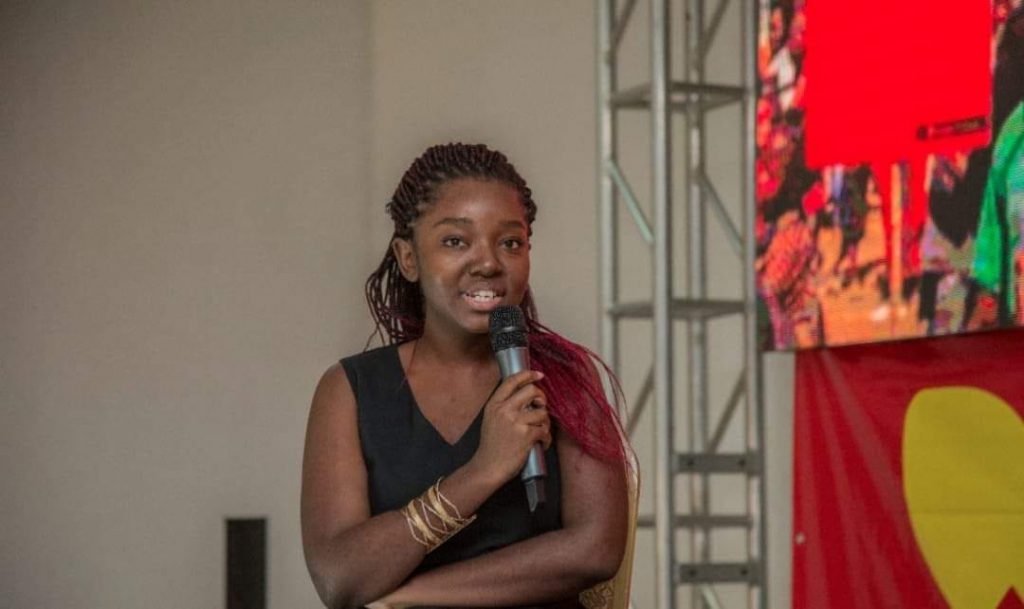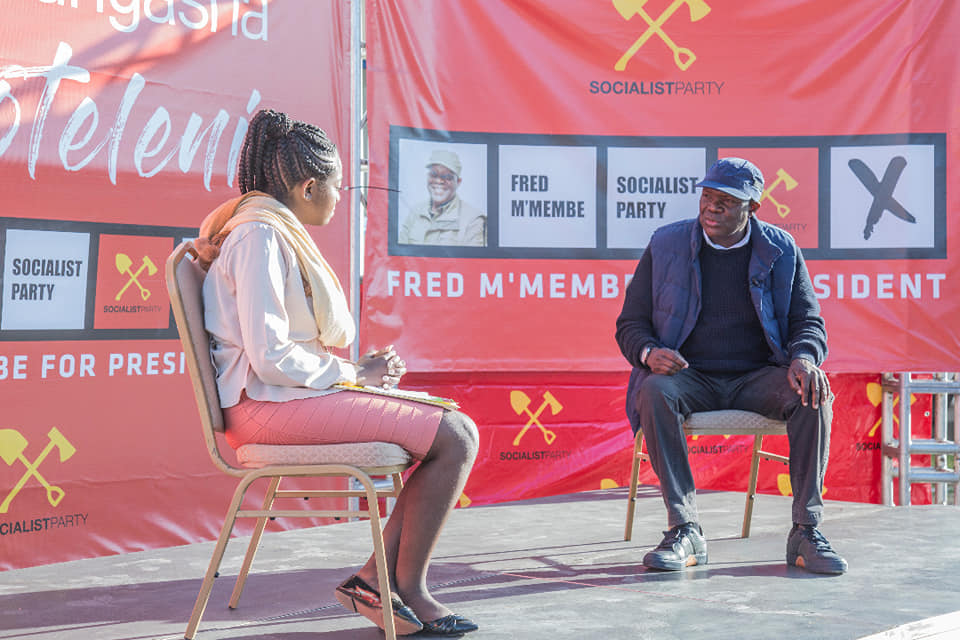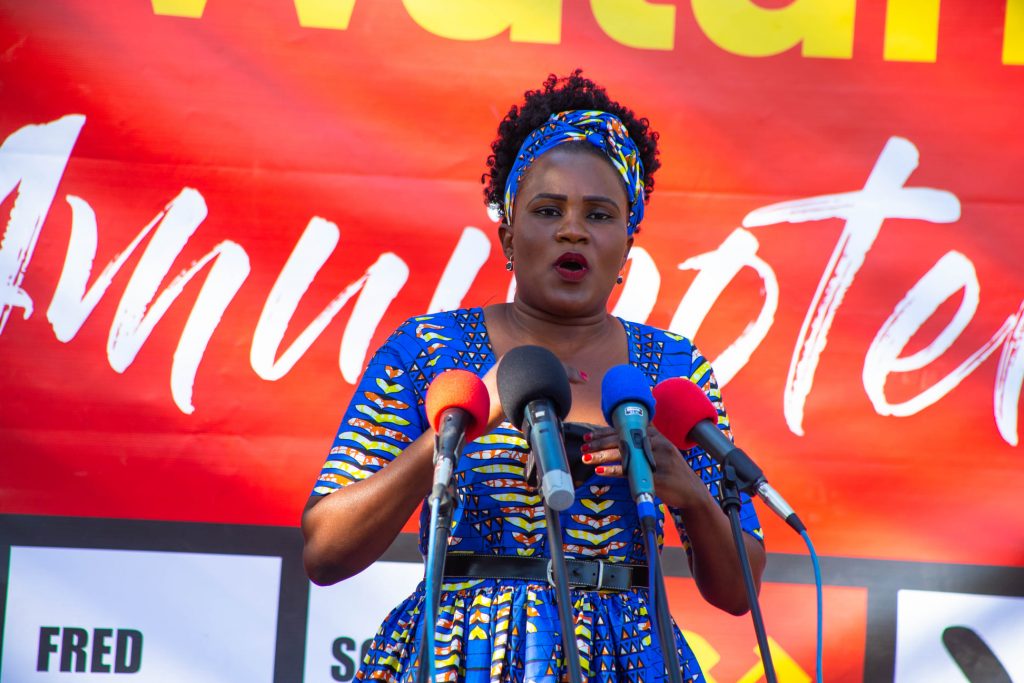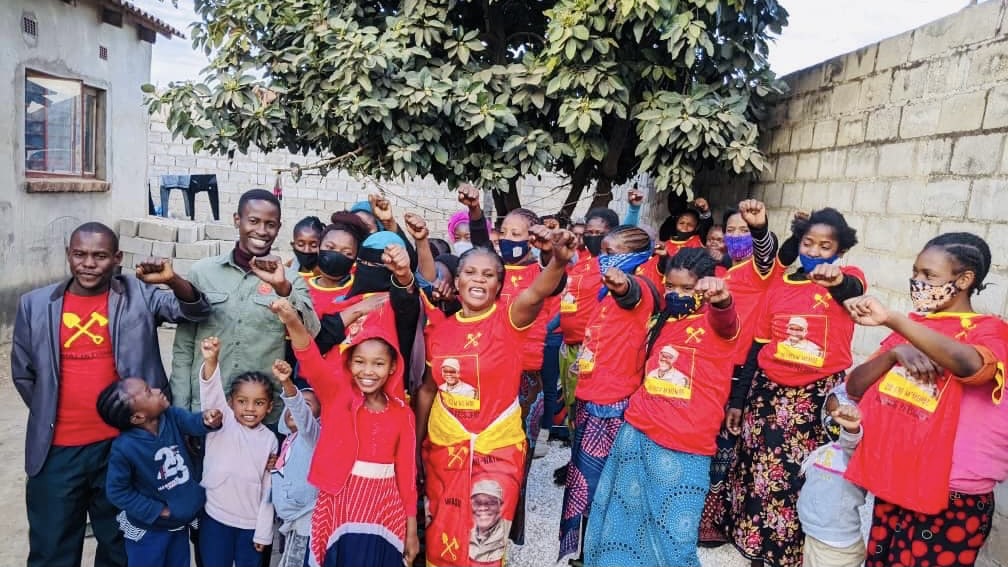Zambia is set to hold general elections on August 12. Over 7 million Zambians will choose their president and vice-president, and representatives to the National Assembly. The elections are being held amid violence between the two traditional ruling parties, the Patriotic Front, of incumbent president Edgar Lungu, and the United Party for National Development (UPND). This situation has led to the militarization of many areas of the country.
In addition to the impact of the COVID-19 pandemic on the electoral process, these elections are also unique because there is a new player in the mix – the Socialist Party of Zambia. The party, which was founded in 2018 and is running the former editor of The Post and a long-time political activist Dr. Fred M’membe on their presidential ticket, is presenting an exciting alternative for Zambians who are currently suffering from a deep economic crisis and a shrinking civil space. Their platform which focuses on education, agriculture and employment seeks to break Zambia away from “the torturesome path we [Zambians] have traveled over the last three decades of neoliberal capitalist experiments that have landed us in poverty and despair.”
Cadres from the Socialist Party have been on the ground campaigning since early May. In order to hear more about their efforts and about their vision for Zambia, Peoples Dispatch spoke to Rehoboth Kafwabulula, the Spokesperson of the Socialist party and a member of the Central Committee.

Peoples Dispatch: Can you kind of take us through the ground situation in Zambia as election day approaches? What is the kind of campaigning that is going on? What has been the response of the government to critics? Are there concerns of political violence?
Rehoboth Kafwabulula: It’s definitely been an interesting campaign of course – the first of its kind because of things like COVID-19 pandemic. Zambia is considered a democratic country. We do practice multi-party politics but even before COVID-19, there were lots of restrictions in terms of political space. We have what you call a shrinking civil space.
The government has been harassing media houses like The Post since the current administration took over in 2015. We’ve seen six media houses being closed for different reasons since then. But in fact, all of those editors took a stance that was seen as pro-opposition or anti-government.
Even before COVID, you could say that people who aren’t members of the ruling party haven’t necessarily been able to breathe what you would call fresh air because of restrictions and things like that. We have the Public Order Act, which is basically a law that restricts people from being able to gather without getting permits from the police. This is a law from when we were a colony, Rhodesia.
So, now you have a situation where if you want to meet, if you want to go out or have meetings as a political party, you need to get a permit from the police. But the police are not exactly an opposition political party’s best friend in this country.
I think that’s the backdrop. It’s been a very difficult environment to operate in but it’s been an environment that we’ve more or less navigated our way through despite the restrictions on gathering and despite not having the same amount of access when it comes to the media. But COVID-19 has added an extra dimension now because there are guidelines and restrictions on how political parties can act during this period or the way we can reach out to people.
Rallies, for example, are virtual now and we’ve had a few of them, very successful ones. We’ve had a door-to-door campaign. That’s really been the thrust of the campaign for the Socialist Party. It’s largely been our aspiring members of parliament, aspiring councilors and really just all the party members speaking to people in the communities that they live in.
We’ve also had our messages broadcast over private media – on print, television, and radio – which has been very well received.

But even during this period, the law has not been applied impartially. We have seen members of the ruling party being able to have mass meetings in which hundreds of people have gathered. But members of the opposition, especially the Socialist Party, can’t do that without getting in trouble with the police for not following COVID guidelines, and regulations. That’s been a real challenge.
Mass political violence has also taken place. Members of the ruling party have even shot at some of our candidates in constituencies like Kanyama in the Lusaka province. Members and supporters of other political parties have interrupted our meetings in other provinces too. They often come with live ammunition and fire shots or they throw stones at us.
Some people have described it as the bloodiest election in the past twenty years. We haven’t seen this kind of violence since the 90s. This is the first time in many years that the government has had to deploy the military police and the armed forces to curtail the violence. But it’s interesting to note that more often than not, it is members from the ruling party who start the violence. Once it spirals out of control, instead of controlling its members, the ruling party decides to police and almost militarize communities. So that’s where we are now.
There are only a few days left and we’re very hopeful that we’re going to do very well in this election because our message has been received very well. The party actually has grown much more since the campaign began than any other prior period. We have fielded the greatest number of women of all the political parties contesting this election. We also fielded the greatest number of young people. The minimum age in Zambia to be a member of parliament is 21. We’ve been able to attract candidates as young as 21 which is something that our competitors haven’t really been able to do. So we are the most vibrant party, and we think that will help us perform well.
Watch: Socialist Party of Zambia’s music video #Zivotele
PD: What is the message that the Socialist Party of Zambia is taking to the people? What is the vision for the future? What are the issues on the grounds that you are trying to address when presenting the platform of the Socialist Party?
RK: How have we been able to attract young people and women? Our message is simple. Our slogan for this campaign is “Zivotele.” That is a Bemba saying which in English means, “Vote for yourself.” And the reason we’re saying vote for yourself is because the people who we are fielding – these men, women and young people – are ordinary members of the community. Usually Zambian politics is a game of the elite. It’s a game for very wealthy businessmen and businesswomen. Those who win political office and wield power are usually from what you would call “extreme bourgeois” backgrounds.
But for the first time in this country, we are fielding ordinary poor citizens from working class backgrounds and working class communities, and we’re saying to them, nobody’s going to change your condition for you. In Zambia, rural constituencies are often represented by those who live and have grown up in the city. They often win only because they offer people money and food products in exchange for votes.
Now, for the first time, we are sending members of parliament – especially for the rural constituencies – who actually live in these communities. We are saying vote for yourself, because what you can’t do for yourself, nobody’s going to be able to do it for you.
We have candidates who work in the market and candidates who are bus drivers. This is unprecedented. This is why we’ve also gotten a lot of media attention too. We are telling people to vote for themselves and build their own communities and constituencies because the people from the uptown neighborhoods are not going to do it for them; they’ve never done it and they’ll never do it. That is really the cornerstone of our message. ‘Get out there, do it for yourself. What you can’t do for yourself, no one will do it for you.’

There are three primary issues that we are talking about. Education is a priority. About 70% of the rural population is illiterate. People don’t have the capacity to read and write because they don’t have access to education. And the reason they don’t have access to education is because they don’t have money to afford it. Even here in the city, a good number of people from working class neighborhoods, especially elderly people, can’t read or write. Even the younger people are often semi-functional illiterates. They have basic language skills but not much beyond that. We’re saying that education should be free – from kindergarten all the way up to university level. Education should be free and education should be socialized. That is one of the key points in our Manifesto.
Another key aspect is jobs. We are very keen on agriculture and agro-processing. We are a rich country in that we can produce enough and sustain and support ourselves. This is not just in terms of mineral wealth but also food. We can rear cattle and chickens. We can grow our own food – any type of food you name, we can grow it here. We’ve got very good soil, but the challenge is that we are not processing a lot of our own vegetables. So we are tomato growers but we import ketchup. We don’t make ketchup here. The people who do so
make it on such a small scale that it’s not enough for a neighborhood of say 10,000. So we are also talking about agriculture and agro-processing which is also closely tied to employment.
So our three focus areas are free and socialized education from kindergarten to university, active investment in agriculture and jobs for our young people, especially those who don’t have access to employment.
PD: What is the position of the Socialist Party on demands for guaranteeing safe elections and the respect of the democratic rights of the people. According to the SP, how can this be ensured?
RK: We’ve said from the get-go – since March, when a lot of the violence began – that we need to hold people accountable. We hear of violence in different constituencies across the country and often, it’s known who was responsible but for every 100 cases, there may be one or two arrests at the most. And even then, those who are arrested may be the ones who were retaliating to the instigators of the violence. So it’ll be instigated usually by supporters of the ruling party and when members of non-ruling parties respond with more violence, the latter are arrested.
In order to hold people accountable, the perpetrators of the violence must be arrested and prosecuted in the courts of law. The challenge now is the impunity because those committing this violence know that there will be no consequences; there’s no backlash. Political violence is almost treated like a different category. Ordinarily, when somebody commits atrocities in the neighborhood or community, they are picked up by the police, taken to the court of law and prosecuted. Sometimes they’re convicted and imprisoned for a good number of years and sometimes they’re given a slap on the wrist, but either way, there’s that process that takes place. But when it comes to cadres who commit political violence or a political crime, there is almost always silence. We believe that the only way to stop the violence is to have these people face the consequences of their actions like they would for any other crime.





